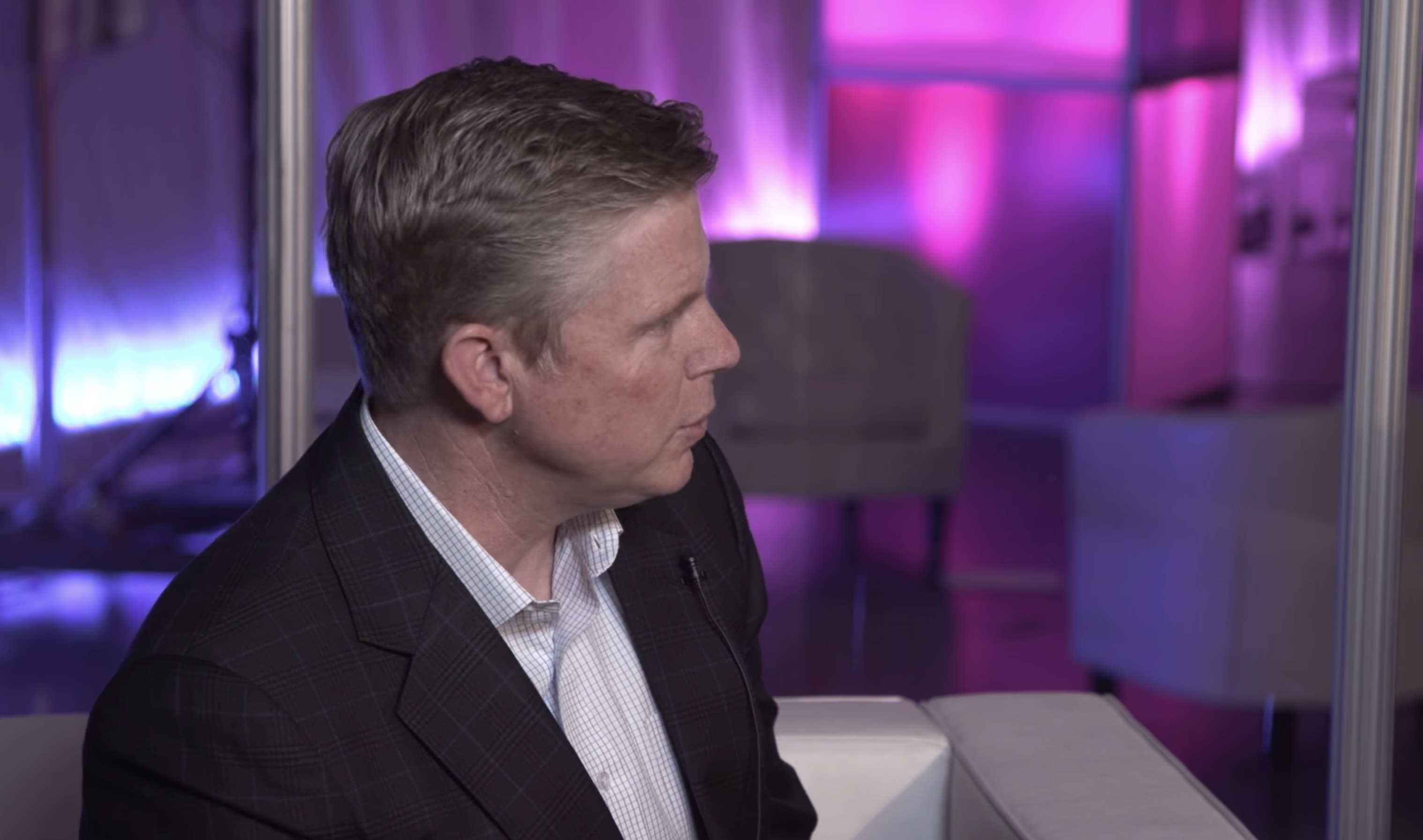The Crypto Lawsuit State of Play
Last month, Ethereum incubator ConsenSys sued the U.S. Securities and Exchange Commission (SEC) for an injunction asking a federal court to block the regulator from investigating its MetaMask offering or from declaring Ether (ETH) a security. It’s the latest company to follow a growing trend of preemptive litigation against the SEC.
You’re reading State of Crypto, a CoinDesk newsletter looking at the intersection of cryptocurrency and government. Click here to sign up for future editions.
Suing the SEC
The narrative
I think it’s fair to say that the U.S. Securities and Exchange Commission’s (SEC) investigations and enforcement actions against crypto companies has now escalated into an all-out legal war, with crypto companies filing lawsuits and rolling out entire press approaches to tackle the SEC.
Why it matters
It seems increasingly unlikely that Congress will actually pass a legislation, which addresses the woes of the crypto industry in the near term. As a result, the industry’s growing strategy of looking for court victories may well be the right one, so to speak – if federal judges, appeals courts, and (I’m guessing) the U.S. Supreme Court start to create case law for companies and regulators to use, that will be one way of securing what the crypto industry calls regulatory clarity.
Breaking it down
Last month, Ethereum developer ConsenSys pre-emptively sued the SEC for injunctive relief. The firm asked a federal court in Texas to block the regulator from investigating it, bringing charges against the MetaMask wallet or MetaMask services and to declare ether (ETH) a not-security. In an unredacted version of the suit filed later, ConsenSys alleged that the SEC launched a formal investigation into whether ETH was a security (though the SEC does not appear to have actually come to a conclusion yet, based on the filing).
They join the DeFi Education Fund and a company called Beba, who sued the SEC at the beginning of the month, the Blockchain Association and Crypto Freedom Alliance of Texas, who sued earlier in the week over how the SEC is defining a “dealer” and a company called Lejilex, which wants to launch a crypto exchange literally called “Legit.Exchange.” Each of these lobby groups or companies has been sued on various charges. Still, they share the same fundamental view: that the SEC is overstepping its boundaries in how it regulates crypto or that the fundamental question of how crypto fits into securities laws needs a more definitive answer.
It’s a growing tactic among crypto companies, which pointedly filed in federal districts known for being less than wholly supportive of the administrative state.
Last month, the Blockchain Association and attorney (and Massachusetts GOP Senate candidate) John Deaton also filed amicus briefs in support of Coinbase’s motion for interlocutory appeal in one of its SEC cases.
Coinbase wants an appeals court to rule on how the Howey Test might apply to digital assets. The amicus briefs both largely argue that courts don’t currently agree on this question, and a higher power needs to step in to at least try and get the various federal judges on the same page.
The next question is how successful these suits and arguments might be. And the real answer is who knows. The federal courts have so far had a variety of rulings in crypto matters. The SEC has had some notable victories, like those against Terraform Labs and Coinbase in early motions (and one trial), not to mention their past victories over Telegram and Kik. The industry has some wins, like the split ruling in the SEC’s Ripple case or the putative class action against Uniswap (issued by the same judge overseeing SEC v. Coinbase and USA v. Roman Storm).
The fact that these various suits are all asking for slightly different things certainly won’t immediately clarify some of these matters.
In the meantime, the SEC itself is continuing with its various investigations. In recent weeks, Robinhood and Uniswap have both announced they received Wells Notices from the agency tied to their crypto offerings. These notices are documents where the SEC said it believes it has enough evidence to bring enforcement actions, and usually, recipients have a chance to argue against an enforcement action.
The 30,000-foot view would suggest that the SEC – despite all the enforcement actions it’s brought over the past year – is starting to finalize some more of its investigations and is ready to turn these over to the courts.
It’s worth pointing out that SEC Chair Gary Gensler has been pretty clear about how he views crypto: most tokens are securities, he’s said over and over again. He repeated this point on CNBC on Tuesday, contrasting token issuers with publicly traded companies.
“Without prejudging any one of them, many of those tokens are securities under the law of the land, as interpreted by the U.S. Supreme Court. So we follow that law,” he said. “And you, the investors, are not getting the required or needed disclosures about those assets … Where’s the disclosures from these crypto tokens similar to these season earnings releases?”
Gensler did not answer a question about ETH specifically during the interview.
There are a few backdrops to all this legal wrangling. For one thing, as mentioned above, Congress doesn’t look particularly close to passing even a stablecoin bill, let alone market structure legislation.
We’re also now about six months out from the U.S. general election and seven months from the inauguration. I’m not suggesting that the SEC may be running out of time ahead of what looks like a tight election, but it certainly has the hint of a tight election.
Stories you may have missed
CZ gets sentenced
Last week, I flew to Seattle alongside Danny Nelson and several other reporters to cover former Binance CEO Changpeng Zhao’s sentencing hearing.
As a reminder: Last November, Zhao pled guilty to violating the Bank Secrecy Act and stepped down from the exchange he founded. Binance itself agreed to pay $4.3 billion in fines and penalties and submit to a court-appointed monitor (which has yet to be appointed). On Tuesday, Zhao was sentenced to four months in prison.
I live-tweeted the hearing, and The Verge’s Liz Lopatto live-blogged it. You can read those play-by-plays if you want an in-depth version of what happened. The short version: Judge Richard Jones asked representatives for Zhao and the Department of Justice to weigh in on the DOJ’s request to apply enhancements to Zhao’s base-level sentencing guidelines. The DOJ argued that the guidelines recommendation of less than 18 months was too lenient for Zhao’s conduct.
The DOJ attorneys seemed almost ill-prepared for the judge’s questions. I don’t know how else to put it – the judge opened by asking about the enhancements, and the DOJ table needed to confer briefly before taking the lectern.
When the attorney did, his argument was a bit strained, to say the least. At one point, he argued that the judge should be able to infer that Zhao was aware of wrongdoing on his platform after the judge said there was no evidence supporting that assertion. If this description seems harsh, I should note that at this point, my main point of comparison is against the team that prosecuted FTX’s Sam Bankman-Fried, which was a much bloodier affair (metaphorically) and saw a team of DOJ attorneys in New York clinically dismantle the very image of Bankman-Fried.
The defense argument was somewhat more straightforward: Zhao voluntarily showed up to the U.S. instead of fighting extradition, he voluntarily pleaded guilty, he apologized, and he already began taking steps to atone for his misdeeds (stepping down from Binance, agreeing to a $50 million fine).
There was much left unsaid. The defense filing from last month had a significant redacted portion, and a defense attorney alluded to a mitigating factor for Zhao’s sentencing. The judge didn’t want to discuss it, and so we’re all left to speculate as to what, exactly, that mitigating factor was. It’s clear Zhao cooperated with at least one, and likely other federal investigation(s), so there’s probably a good guess there.
As many have pointed out, one reason for the light sentence is the fact that Zhao only pleaded guilty to one charge of violating the Bank Secrecy Act (BSA), which one attorney I spoke to described as “a huge give.”
The DOJ never alleged fraud, and while its sentencing memo hinted at sanctions violation concerns, the DOJ didn’t bring any charges on this front either. The time for the DOJ to allege more serious crimes would have been last year when it unveiled its charge against Zhao and Binance, rather than last month in a sentencing memorandum.
“The fact he hasn’t pleaded guilty to sanctions violations is an enormous give to him … it would not have happened if he hadn’t been willing to show contrition,” said the attorney, who wasn’t authorized to speak publicly.
On the other hand, the DOJ did appear to plan for losing its argument for a stricter-than-guidelines sentence. The law enforcement entity has already begun lobbying Congress for stricter sentencing guidelines for Bank Secrecy Act violations, and last week’s sentence will undoubtedly become a piece of evidence in support of stronger guidelines.
A DOJ spokesperson said in a statement that “this is the first time a CEO has ever gone to jail for a BSA violation.”
It was genuinely interesting to see the extent to which the judge praised Zhao, even when reading through the crimes he pleaded guilty to. While Zhao’s famous “better to ask forgiveness” line was an issue for the judge, ultimately, Judge Jones said he believed Zhao had worked hard to build Binance and demonstrated enough remorse and good character to sentence him to below what the Probation and Pretrial Services Office recommended (five months).
At some future date – it’s not been set yet – Zhao will report to a federal prison for four months.
And then he’s done with this whole episode.
This week
:format(jpg)/cloudfront-us-east-1.images.arcpublishing.com/coindesk/B46OKT5ILBD2JDBDAUCQUQFXDE.jpg)
-
14:00 UTC (10:00 a.m. ET) The U.S. Securities and Exchange Commission held a Small Business Advisory Committee meeting discussing, among other things, crypto issues (briefly).
-
20:00 UTC (4:00 p.m. ET) The House Rules Committee met to discuss a number of bills and resolutions, including a House resolution to disapprove of the SEC’s Staff Accounting Bulletin 121. The full House should vote on this resolution on Wednesday. House Financial Services Committee Ranking Member Maxine Waters (D-Calif.) praised the bulletin during the session, saying lawmakers could address a narrow, controversial aspect of the overall guidance instead of the entire document but have chosen not to do so. “This kind of transparency helps prevent the kind of fraud and mishandling of crypto assets that led to the collapse of major crypto companies like FTX. In fact, this disclosure guidance has been broadly supported by industry and advocate stakeholders alike,” she said. Congressman Mike Flood (R-Neb.) spoke against the bulletin, saying the SEC did an end-run around other regulators in issuing SAB 121 and it was “not the appropriate vehicle to promulgate accounting guidance for digital asset custodians.”
-
14:00 UTC( 10:00 a.m. ET) A House Financial Services subcommittee met to discuss the SEC’s oversight of things like crypto. A group of House Democrats intend to introduce a bill to “clamp down” on crypto mixers, Rep. Sean Casten (D-Ill.) said during the hearing.
Elsewhere:
-
(Protos) Tron creator Justin Sun tried to claim diplomatic immunity in a civil suit filed by former BitTorrent employees who alleged they were wrongfully fired, Protos reports. Sun, who we previously knew to be Grenada’s ambassador to the World Trade Organization, also appears to have been an ambassador to the United Nations for some period of time, said the news organization.
-
(Bloomberg) Molly White, who most in this industry probably know as the creator of Web3IsGoingGreat, wrote an oped in Bloomberg arguing that the crypto industry needs better oversight and self-regulation before the next crash.
-
(White House) The White House published a “National Cybersecurity Strategy Implementation Plan” (version 2) on Tuesday, saying among other things that the U.S. would “support other countries’ efforts to adopt and implement the global anti-money laundering/countering the financing of terrorism (AML/CFT) standards for virtual asset service providers.” This effort will be led by the Treasury Department through the Financial Action Task Force, and this support may include “technical assistance to low-capacity countries,” the document said. An accompanying report also highlighted just how much crypto the U.S. has seized in recent years (among other things).
:format(jpg)/cloudfront-us-east-1.images.arcpublishing.com/coindesk/APIDD2IOCBAIVCODET55BEEM4E.png)
If you’ve got thoughts or questions on what I should discuss next week or any other feedback you’d like to share, feel free to email me at nik@coindesk.com or find me on Twitter @nikhileshde.
You can also join the group conversation on Telegram.
Edited by Parikshit Mishra.









